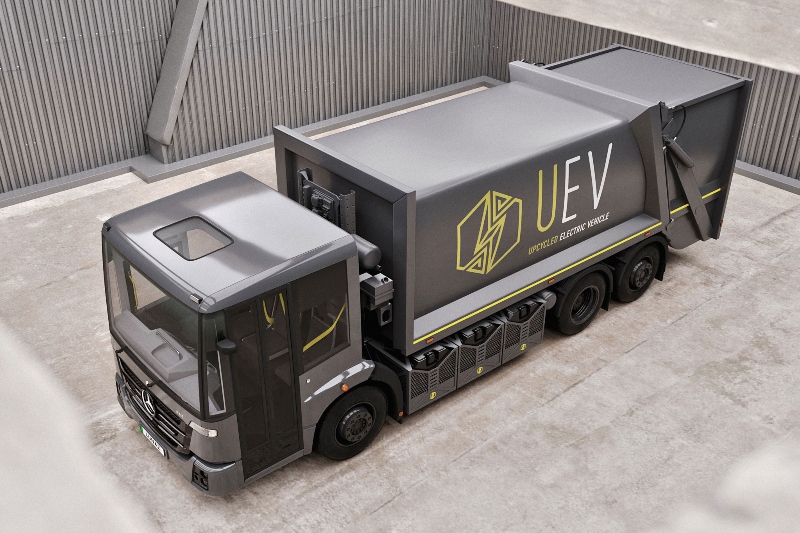Lunaz Applied Technologies (LAT) has finalised the hill-climb component of an extensive testing programme of its Upcycled Electric Vehicles (UEVs) at the test and development facility, Millbrook Proving Ground, Bedfordshire, UK.


The development UEVs tested were refuse trucks on the Mercedes Econic platform. These vehicles have been subject to an upcycling process that includes the replacement of the vehicle’s diesel engine with a fully electric Lunaz powertrain as well as incorporating a suite of the latest safety, connectivity and ergonomic improvements.
Of particular note was the UEVs exceptional performance on the challenging 1:5 gradient of the proving ground. The vehicle, which was fully prepared for a refuse collection round with a ‘crusher’ body mounted and occupied by a driver and two crew, not only ascended the hill effortlessly but had 1000nm of torque in reserve - equivalent to the 253mph Bugatti Veyron.
This test was critical in establishing LAT’s global application. In achieving this milestone LAT UEVs are validated for nearly all residential roads globally.
The hillclimb test was conducted as part of LAT’s ongoing 10-year development programme, compressed into two years by testing five identical Mercedes Econic UEVs simultaneously. These vehicles are currently being subject to 300,000 miles of durability testing on Millbrook Proving Ground’s ‘Belgian Pave’ cobbled road, more than 500 hours of driver calibration, where pedal feel, power delivery and braking endurance are finessed, and 800 hours of energy optimisation, balancing power consumption with performance.
The UEVs 56mph top speed – a significant figure in that many vehicles in its class are only capable of 35mph – will also be tested continually for more than 200 hours.
A highly specialised and diverse test team has been assembled to carry out this testing. Its development driver team is made up of refuse and heavy goods vehicle drivers, who share a collective 50 years of frontline operational experience, as well as hypercar, aerospace and nuclear submarine engineers.
LAT’s exhaustive testing programme will conclude ahead of first fleet deliveries in 2023.
David Lorenz, CEO, Lunaz: 'I believe that every vehicle deserves at least two lives, and I am extremely proud of the engineers who are in the process of not just delivering but validating this vision. Our Upcycled Electric Vehicles represent so much more than technological innovation - they deliver a major improvement for the wellbeing of the drivers and crew who operate these vehicles and provide a critical reduction in the environmental impact all-new refuse trucks make. A UEV achieves this not only by way of its clean-air powertrain but in unlocking the embedded carbon trapped in scrapped trucks.'